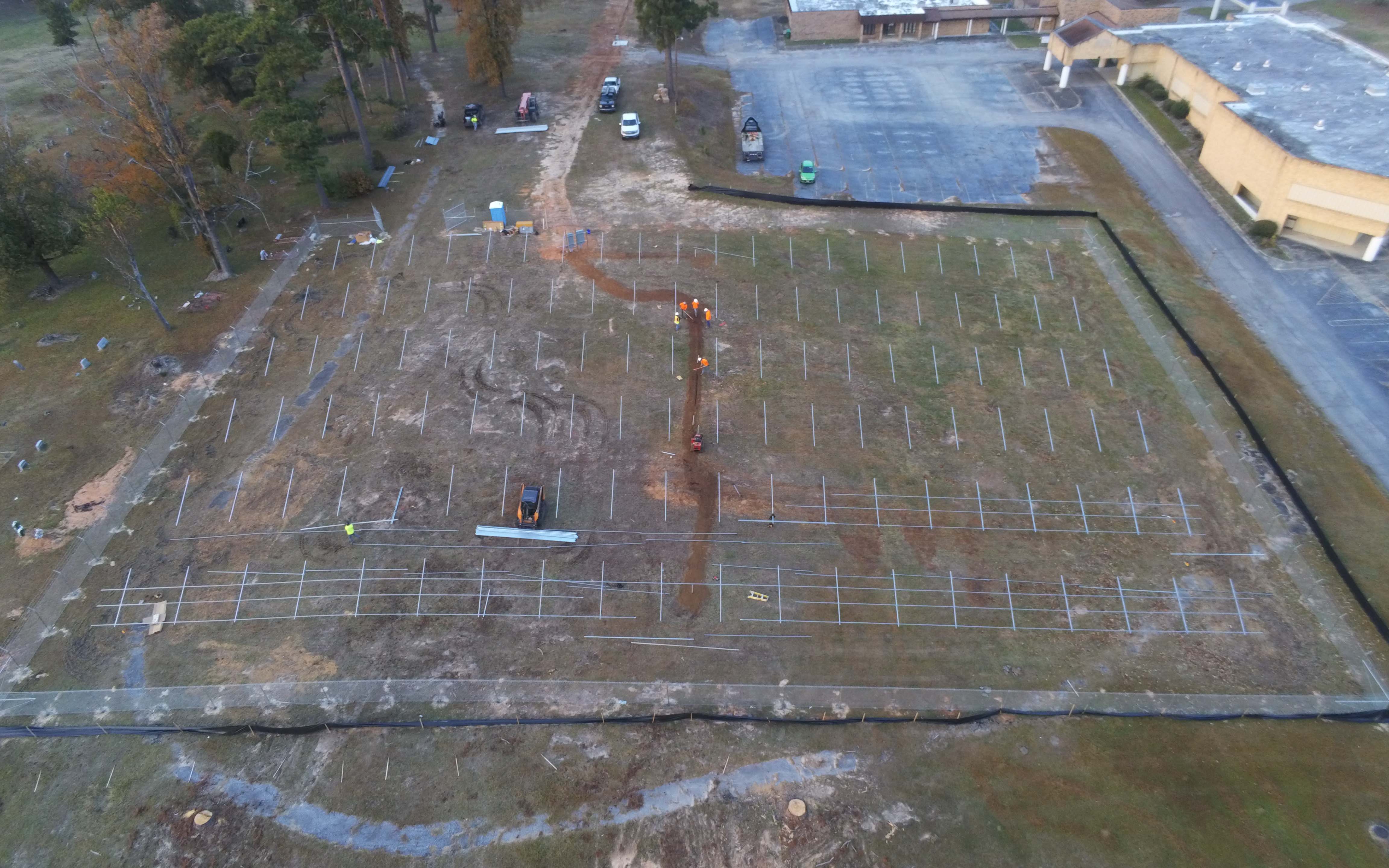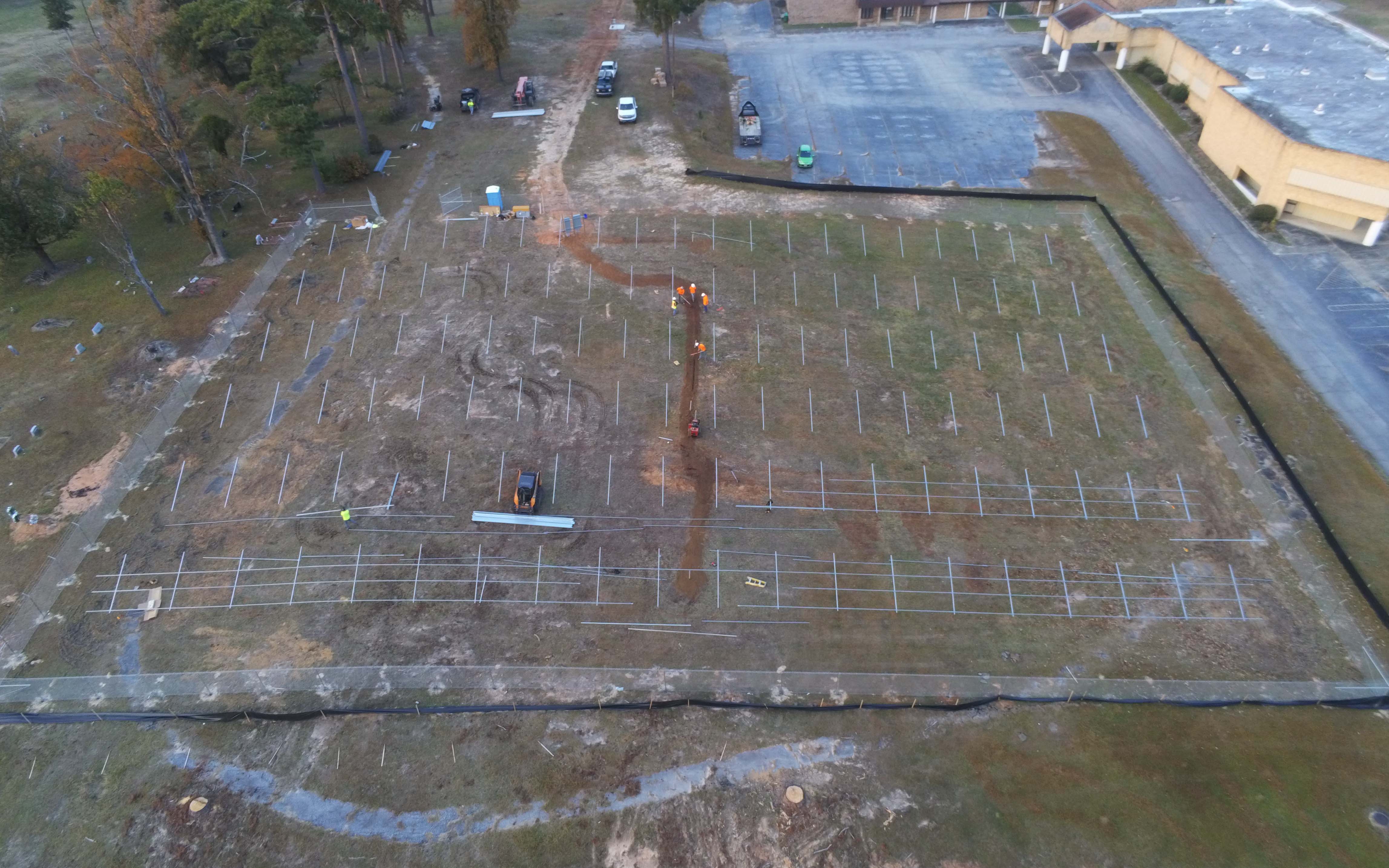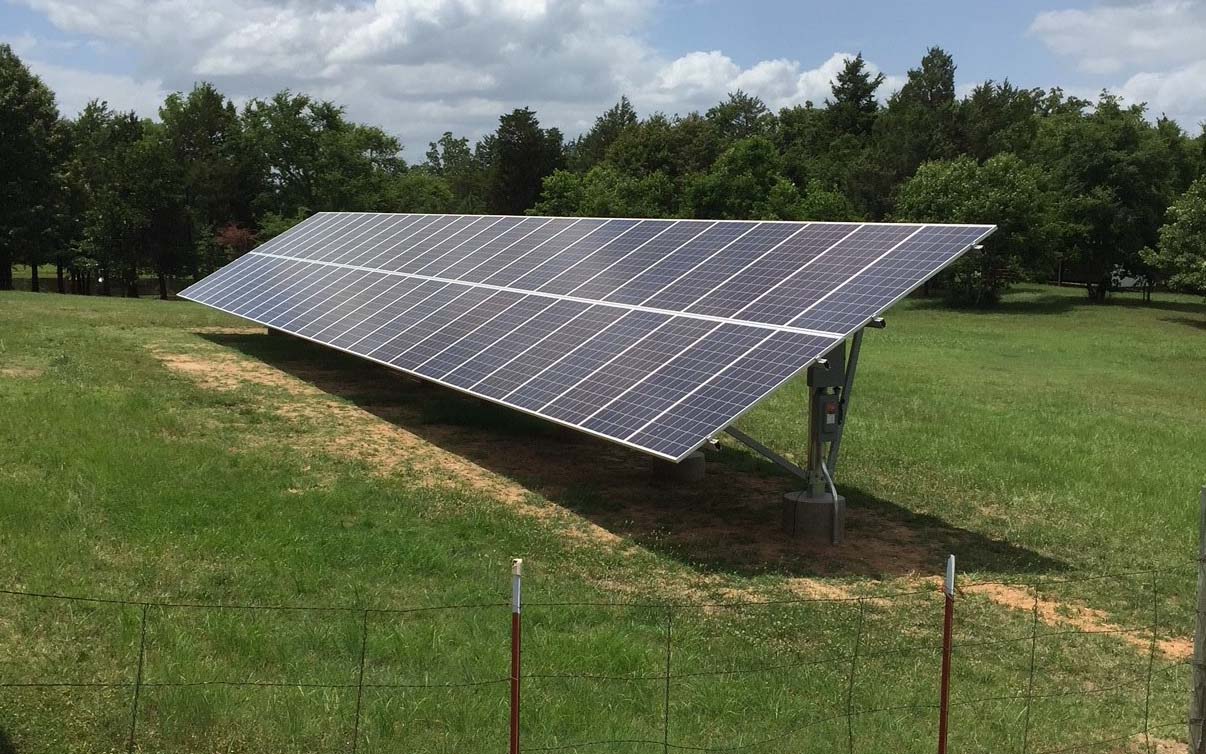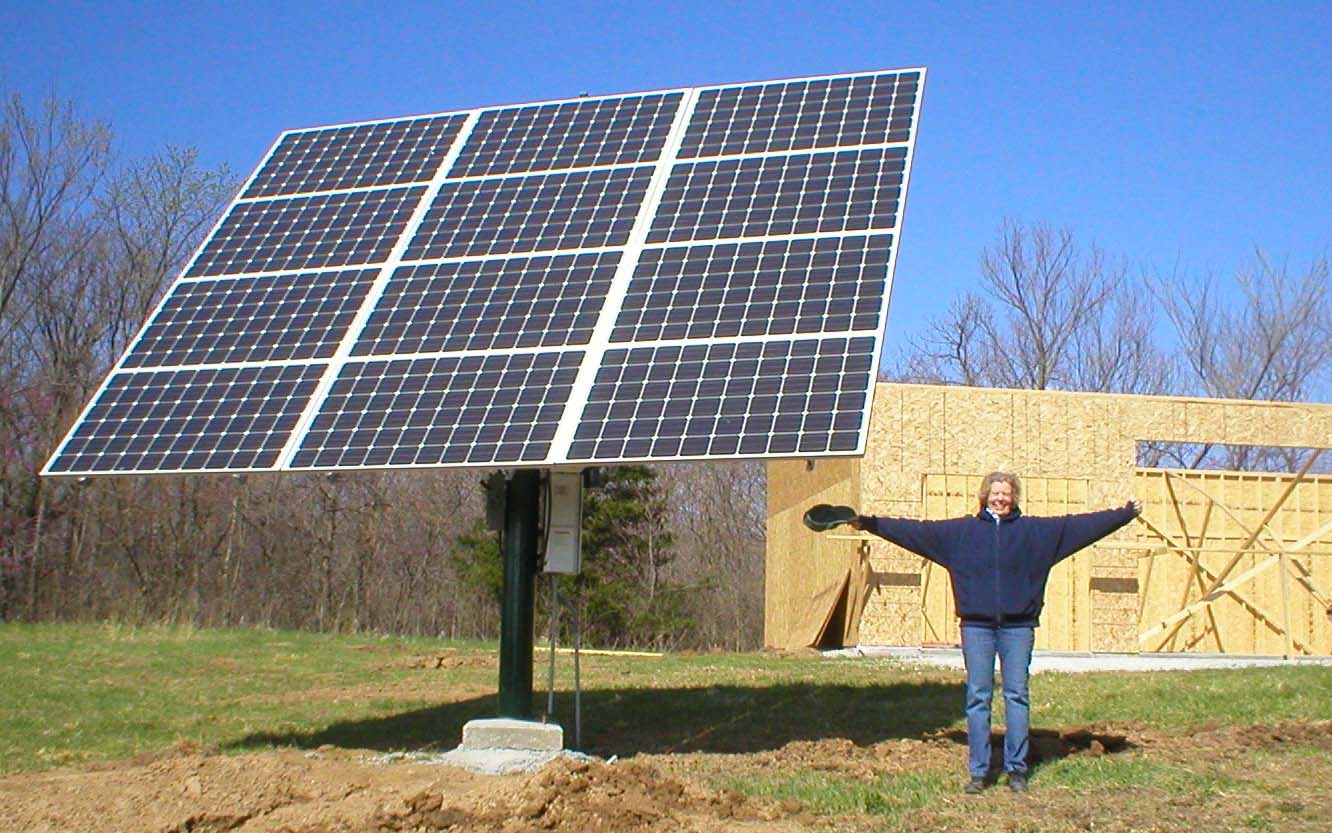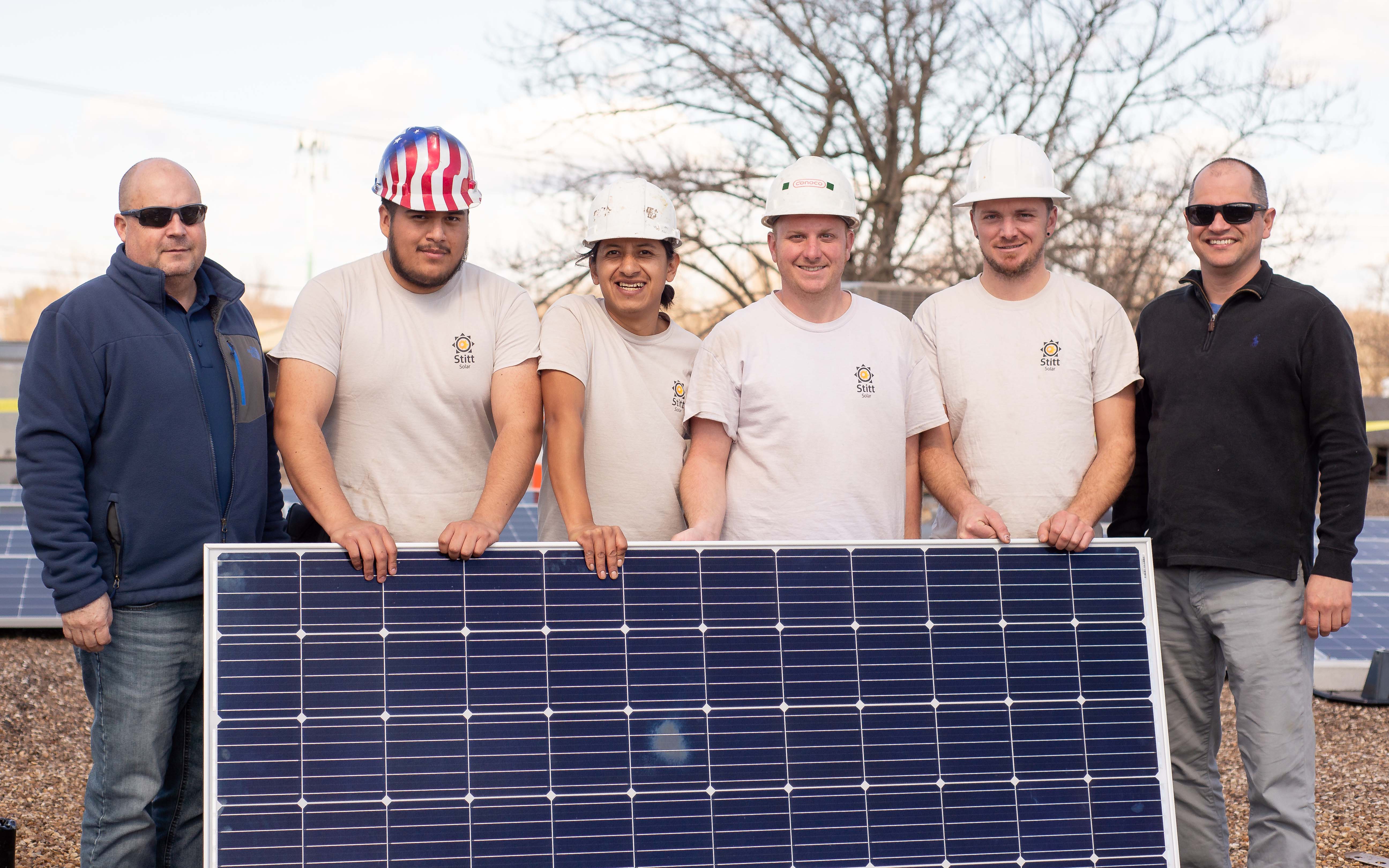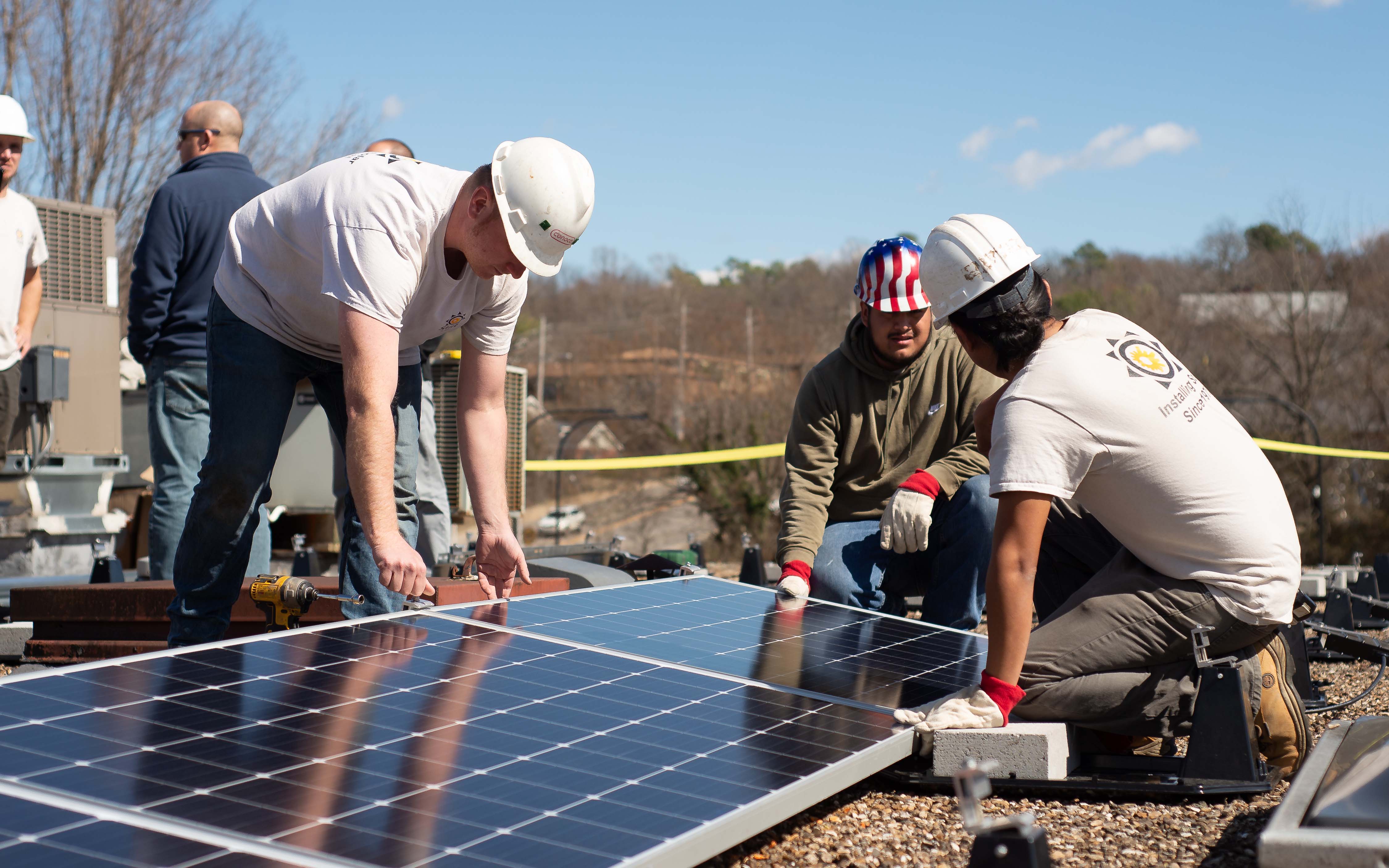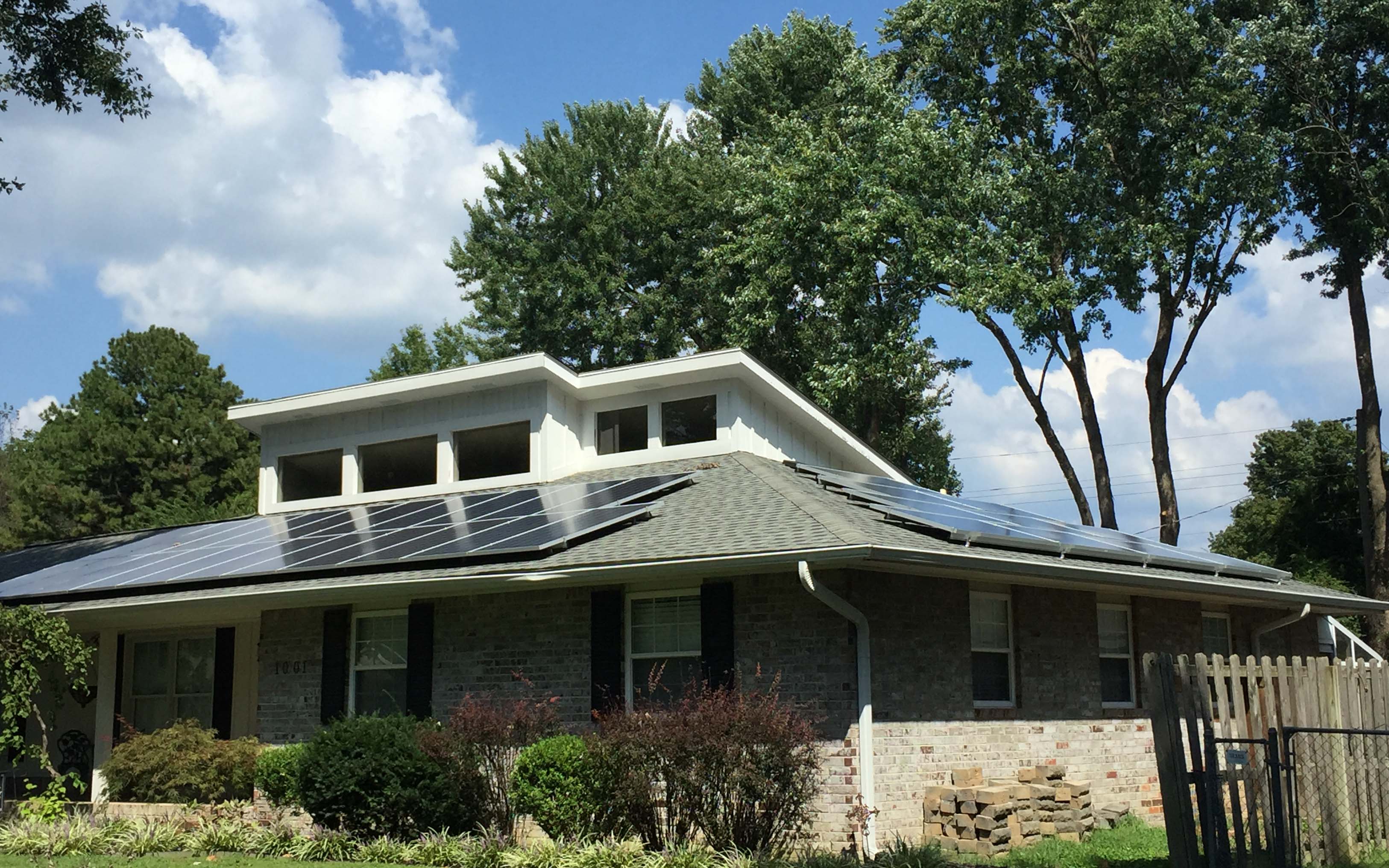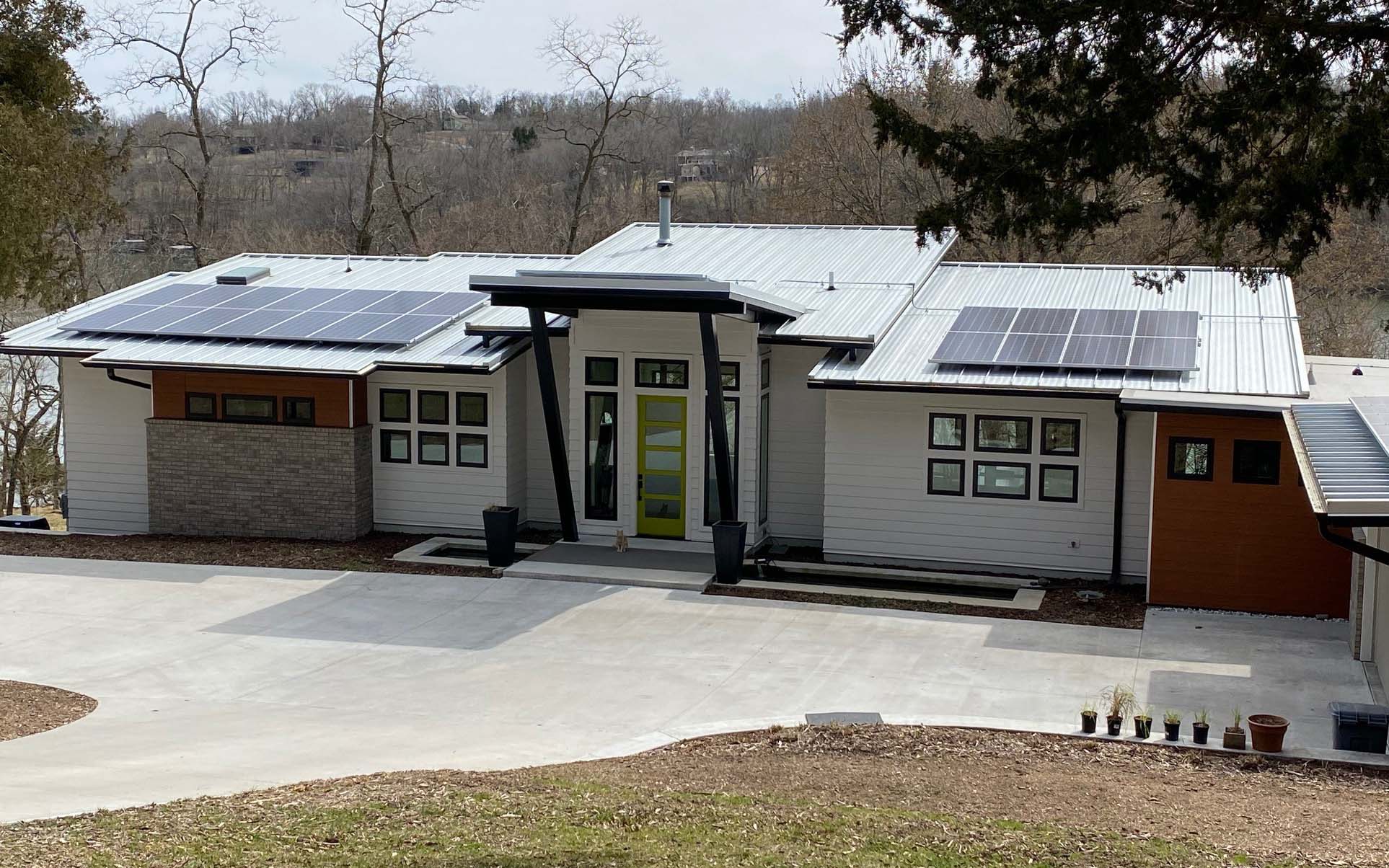Solar projects ramping up in Central Arkansas in 2020
March 9-15, 2020
By Wesley Brown
Audubon Society, Innovation Hub jump into the solar array with new projects
Several Arkansas municipalities, nonprofits, state agencies and other non-tax entities are now taking advantage of new legislation enacted into law last summer to speed up the adoption of sun-powered solar energy project statewide in 2020.
The new law, now known as the Solar Access Act of 2019, was signed by Gov. Asa Hutchinson in July 2-10 following a long debate and tedious negotiations by Arkansas lawmakers, energy regulators, and renewable and clean energy advocates during the 82nd General Assembly.
However, following passage of the 10-page bill by Sen. Dave Wallace, R-Leachville, Arkansas has not looked back as a growing wave cities, counties and school districts are now seeking to deploy solar and energy efficiency technologies. In its recent annual report for 2019, the Arkansas Advance Energy Association (AAEA) noted that the organization expects another year of expansion and opportunity for the advanced energy sector in 2020.
“This is an exciting time for Arkansas’s advanced energy economy” said AAEA Chairman Gary McChesney, also Chief Technology Officer for FutureFuel Chemical Company in Batesville. “This is an exciting time for Arkansas’s advanced energy economy. We continue to see a growing demand for advanced energy technologies, which we know creates career opportunities, secures local community investment and generates energy savings. The advanced energy economy, led by AAEA’s innovative business leaders, is an increasingly important economic driver in our state with tremendous opportunity ahead.”
During the 2019 legislation session, AAEA Executive Director Katie Niebaum and association members were instrumentational in working with legislators to secure passage of the “Solar Access Act.” Among other things, the new legislation opens the doors for third-party financing of solar systems for municipalities and other nonprofits that could double or triple the number of solar jobs in Arkansas, according to analysis from the Business Innovations Legal Clinic at the University of Arkansas-Little Rock’s Bowen School of Law.
The new solar-powered legislation also allows the Arkansas Public Service Commission (PSC) to moved forward in May with the final phase of regulatory proceedings for the state’s net metering rules. The PSC has already set up procedural schedule for the net metering docket, which opens the door to consider solar generation at the residential level and a full range of issues concerning renewable energy projects beyond net generation.
“And I think we are going to continue to see all of those trends continue to move into a positive direction into 2020,” said Niebaum.
Already in 2020, two major solar projects were announced in late February by the Arkansas Regional Innovation Hub and the Arkansas Audubon Society. The Innovation Hub, which is part of Winrock International, is partnering with solar energy developer Scenic Hill Solar to build a solar power plant to provide electricity to help power the North Little Rock entrepreneurial group’s operations.
The new 72 kW solar power plant will produce 42% renewable energy for the Innovation Hub’s operations and will be constructed as a canopy to cover the building’s parking. Innovation Hub Executive Director Chris Jones said the solar power plant will reduce the entrepreneurial service group’s annual electricity expenses, and free up additional resources to expand workforce development and educational programming.
“On rare occasions, our organization gets to accomplish multiple objectives with one project. Partnering with Scenic Hill Solar on our (solar project) is one such occasion,” said Jones. “This project will serve as a model for the state, and the nation, on how a community based solar project can lead to greatly improved education, workforce, entrepreneurial, and community engagement outcomes.”
The North Little solar development, which is located in the city’s booming downtown Argenta district, will begin construction after all governmental approvals are received. It is slated for completion and generation of solar electricity in late 2020, officials said, and will contain over 175 solar arrays that will be roof-amounted atop the facility’s parking lot.
Scenic Hill, which is led by former Arkansas Lt. Gov. Bill Halter, is also partnering with the state Audubon Society to install a new solar facility and ‘Solar Learning Lab’ at the nonprofit Little Rock location. Audubon officials said the project will meet 100% of the center’s electricity demand and provide community education opportunities on solar power technology.
“In order to protect the birds that we love and the places that they need to survive, it’s important that we do everything we can as an organization to reduce our own carbon emissions,” said Uta Meyer, manager of the Little Rock Audubon Center (LRAC). “Not only will going 100% solar give us an opportunity to educate the community on the benefits of renewable energy for both people and wildlife, it will help ensure that we’re part of the solution in everything we do.”
The 35-kilowatt (Kw) solar-powered center will be built at LRAC’s Arkansas headquarters, which sits on 450 acres in Granite Mountain and serves as an environmental education field trip destination for K-12 students and hosts a daily out-of-school time program. Over the next 30 years, the solar power plant will reduce carbon emissions by the equivalent of removing 2.7 million passenger car miles from the highway, officials said.
Construction of the power plant, which will be built, owned, and operated by Scenic Hill, is expected to start following utility approvals and to be completed this year. The Solar Learning Lab will include the ground mounted solar facility tied to LRAC’s electric meter, an indoor interactive educational exhibit on solar technology, and two tracks of educational curriculum – geared towards K-12 students and nonprofit leaders.
“Scenic Hill Solar is delighted to work with Audubon Arkansas on this solar power and educational project,” said Halter. “As the first nonprofit organization in Arkansas to utilize 100 percent solar electricity, Audubon Arkansas is simultaneously building on its rich history of environmental stewardship and conserving scarce budget resources. We are proud to partner with such an exemplary organization.”
Statewide, a report in March 2019 by GMT Research and the Solar Energy Industries Association showed that the Natural State added the 18th most solar projects among the 50 states in 2018. Altogether, Arkansas added 118 megawatts of solar generation with that number expected to grow in 2019 and 2020.
Additionally, Arkansas recorded the largest annual increase in the number of net metering systems ever. AAEA’s review of annual electric utility filings with the Arkansas Public Service Commission found a total of 1,508 net metering systems as of Dec. 31, 2018, a 520-net or 52% increase over the end-of-2017 number of 988 systems.
Over the past year, Scenic Solar and other renewable energy developers and construction firms have partnered with several government agencies, private businesses and municipalities to provide sun-powered electricity in communities of all sizes across the state.
Last month, Little Rock-based Entegrity Partners announced the development of a $1 million solar project for the city of Prairie Grove in Northwest Arkansas. That project, capable of producing nearly 650 Kw of power, will include a 395-kilowatt array built on two acres adjacent to the city’s wastewater treatment plant. The project will get underway once suitable land is found for 249.5-kilowatt solar array.
In May 2019, Entegrity also announced the Delta’s first major solar project after entering into a $1 million contract with Phillips County to install an initial 400 kilowatts of solar photovoltaic array, with the capacity to add another 600kw of solar power in the future. The solar installation is expected to generate a total of 593,000 kilowatts per hour of clean energy annually, enough to power 48 Arkansas homes for a year.
Also, Today’s Power Inc., the renewable energy arm of Little Rock-based Arkansas Electric Cooperatives Inc., has also announced similar solar projects in Paris, Texarkana, Arkadelphia, Jonesboro, Fayetteville and other areas of the state. According to company officials, the renewable energy firm successfully installed and commissioned six projects totaling over 18.5 megawatts in 2019.
In April 2019, U.S. monthly electricity generation from renewable sources exceeded coal-fired generation for the first time, according to the U.S. Energy Information Administration (EIA). Renewable sources provided 23% of total electricity generation to coal’s 20%.
Wind generation reached a record monthly high in April 2019 of 30.2 million megawatt hours (MWh). Solar generation — including utility-scale solar photovoltaics and utility-scale solar thermal — reached a record monthly high in June 2018 of 7.8 million MWh and will likely surpass that level in 2020, said the EIA, which is the research arm for the U.S. Department of Energy.
PHOTOS CAPTION: (Photos provided by Stitt Solar, McKinstry Construction and Sun City Solar)
Solar Access Act of 2019 fueling solar projects across the state.



